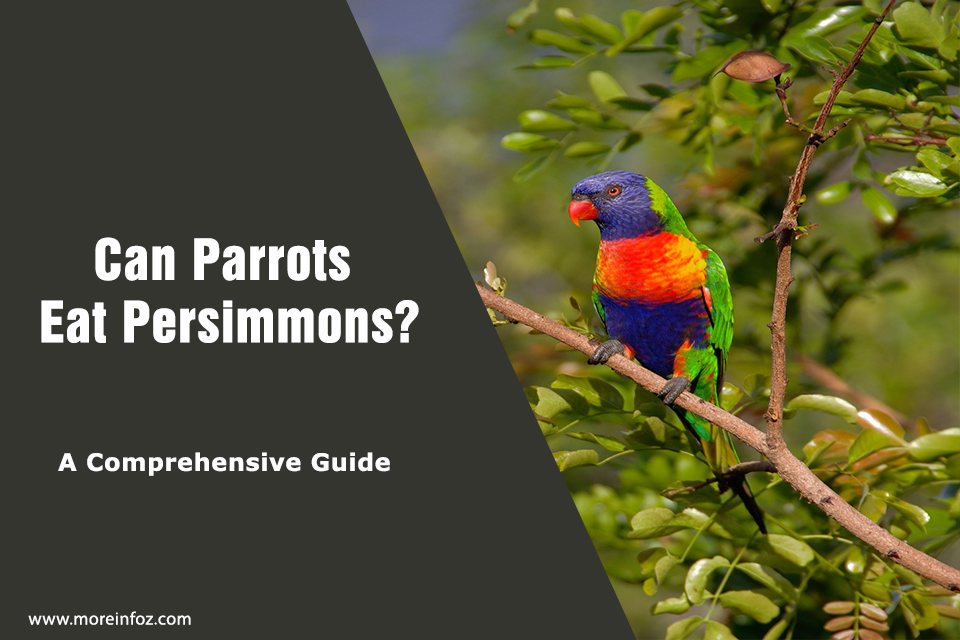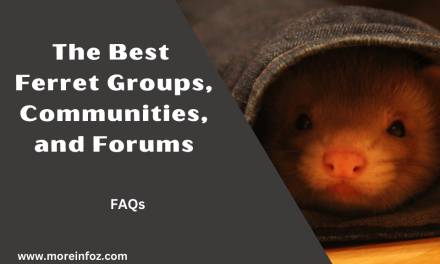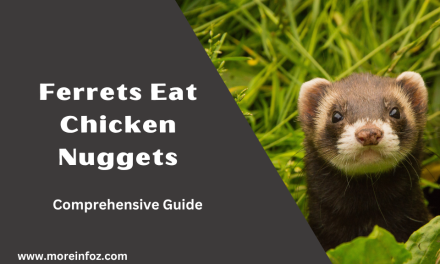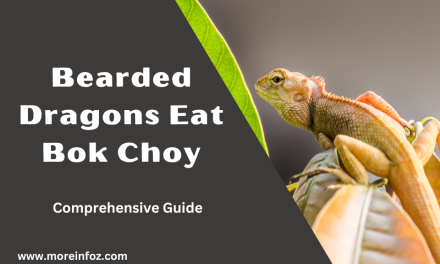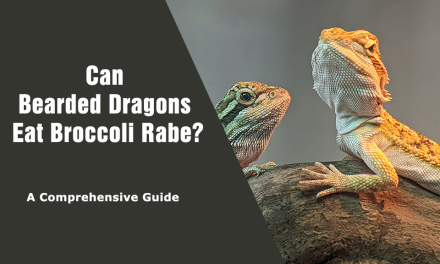Parrots are known for their love of fruits and vegetables. As pet owners, it is our responsibility to ensure that we provide them with a balanced diet that meets their nutritional needs. One fruit that may catch your attention is the persimmon. But can parrots eat persimmons?
Persimmons are a fruit that is high in fiber, vitamins A and C, and antioxidants. While they are safe for humans to eat, it is important to note that not all fruits that are safe for us to eat are safe for our feathered friends. In this article, we will explore whether persimmons are safe for parrots to eat, and if so, how much and how often they can be fed.
Can Parrots Eat Persimmons?
General Perspective
As parrot owners, we always want to ensure that our feathered friends are eating a balanced diet that provides them with all the necessary nutrients. Persimmons are a delicious fruit that many of us enjoy, but can our parrots eat them too?
The answer is yes, parrots can eat persimmons. However, it is important to note that persimmons should only be given to parrots in moderation as they are high in sugar. Too much sugar can lead to health problems such as obesity and diabetes.
Nutritional Value
Persimmons are a great source of vitamins and minerals that are essential for a parrot’s health. They are rich in vitamin A, which is important for maintaining healthy eyesight, as well as vitamin C, which helps boost the immune system. Persimmons also contain potassium, which is important for maintaining healthy muscles and nerves.
Here is a table that shows the nutritional value of one medium-sized persimmon:
| Nutrient | Amount |
|---|---|
| Calories | 118 |
| Carbohydrates | 31 grams |
| Fiber | 6 grams |
| Protein | 1 gram |
| Fat | 0.3 grams |
| Vitamin A | 55% of the daily value |
| Vitamin C | 21% of the daily value |
| Potassium | 8% of the daily value |
In conclusion, parrots can eat persimmons as part of a balanced diet. However, it is important to give them in moderation due to their high sugar content. Persimmons are a great source of vitamins and minerals that can help keep our feathered friends healthy and happy.
Potential Risks of Persimmons for Parrots
When it comes to feeding persimmons to parrots, there are some potential risks that we need to consider.
Firstly, persimmons contain high amounts of sugar, which can be harmful to parrots if they consume too much. While a small amount of fruit can be a healthy addition to a parrot’s diet, too much sugar can lead to obesity, diabetes, and other health problems.
Secondly, persimmons contain tannins, which can cause gastrointestinal irritation in parrots. This can lead to vomiting, diarrhea, and other digestive issues. In some cases, the tannins can also interfere with the absorption of nutrients from other foods, which can lead to malnutrition over time.
Finally, persimmons may contain pesticides and other chemicals that can be harmful to parrots. It’s important to choose organic persimmons whenever possible, and to wash them thoroughly before feeding them to your parrot.
Overall, while persimmons can be a healthy addition to a parrot’s diet in moderation, it’s important to be aware of the potential risks and to take steps to minimize them.
Benefits of Persimmons for Parrots
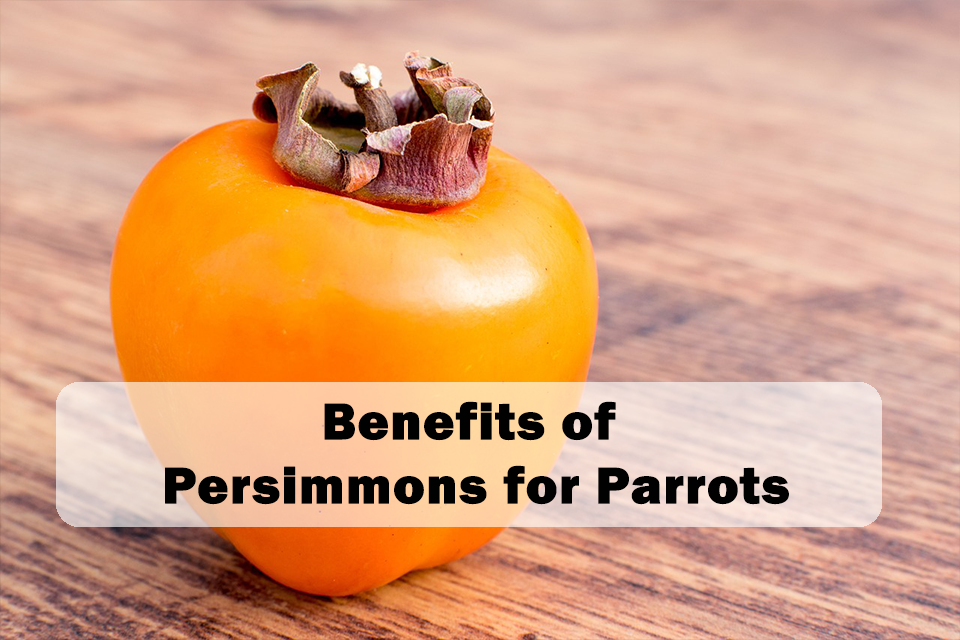
Persimmons are a delicious fruit that can provide many health benefits for parrots. Here are some of the benefits of feeding persimmons to your feathered friend:
- Vitamin C: Persimmons are an excellent source of vitamin C, which is essential for maintaining a healthy immune system. Vitamin C can also help prevent infections and diseases in parrots.
- Antioxidants: Persimmons are rich in antioxidants, which can help protect your parrot’s cells from damage caused by free radicals. Antioxidants can also help prevent cancer and other diseases.
- Fiber: Persimmons are a good source of fiber, which can help regulate your parrot’s digestive system. Fiber can also help prevent constipation and other digestive problems.
- Potassium: Persimmons are a good source of potassium, which is essential for maintaining healthy heart function. Potassium can also help regulate blood pressure in parrots.
- Low in Fat: Persimmons are a low-fat fruit, which makes them a great snack for parrots who are watching their weight.
When feeding persimmons to your parrot, it’s important to remember that moderation is key. While persimmons are a healthy snack, they should not make up the majority of your parrot’s diet. Always consult with your veterinarian before making any changes to your parrot’s diet.
How to Feed Persimmons to Parrots
Feeding persimmons to parrots can be a healthy and tasty treat for your feathered friend. However, it’s important to follow a few guidelines to ensure that your parrot is getting the most out of this fruit.
First, make sure that the persimmon is ripe. An unripe persimmon can be very astringent and may upset your parrot’s stomach. A ripe persimmon should be soft to the touch and have a deep orange color.
Next, wash the persimmon thoroughly to remove any dirt or pesticide residue. You can slice the persimmon into small pieces or mash it up into a puree.
It’s important to note that persimmons are high in sugar, so they should be fed to your parrot in moderation. Too much sugar can lead to obesity and other health problems.
Additionally, persimmons contain seeds that can be a choking hazard for your parrot. Be sure to remove all seeds before feeding persimmons to your parrot.
Overall, persimmons can be a healthy and tasty addition to your parrot’s diet when fed in moderation and prepared properly.
Alternatives to Persimmons for Parrots
When it comes to feeding our feathered friends, it’s important to provide them with a variety of fruits and vegetables to ensure they receive a balanced diet. While persimmons can be a tasty treat for some parrots, not all parrots enjoy them or can tolerate them. Here are some alternative fruits and vegetables that can be offered to parrots instead of persimmons:
Fruits
- Apples: A great source of fiber, vitamin C, and antioxidants. Be sure to remove the seeds and core before offering.
- Berries: Blueberries, strawberries, raspberries, and blackberries are all packed with antioxidants and other beneficial nutrients.
- Mango: A sweet and juicy fruit that is rich in vitamin A and C.
- Papaya: A tropical fruit that is high in vitamin A and digestive enzymes.
- Pineapple: A delicious fruit that is high in vitamin C and bromelain, an enzyme that aids in digestion.
Vegetables
- Carrots: A crunchy and nutritious vegetable that is high in vitamin A and beta-carotene.
- Sweet potato: A great source of fiber, vitamin A, and potassium.
- Broccoli: A cruciferous vegetable that is high in vitamin C and other beneficial nutrients.
- Kale: A leafy green vegetable that is packed with vitamins and minerals.
- Peppers: Bell peppers, jalapenos, and other types of peppers are all rich in vitamin C and other beneficial nutrients.
Remember, when offering new foods to your parrot, it’s important to introduce them slowly and in small amounts to avoid digestive upset. Always consult with your veterinarian before making any changes to your parrot’s diet.
Conclusion
In conclusion, persimmons can be a healthy and nutritious addition to a parrot’s diet. They are a good source of vitamins A and C, potassium, and fiber. However, it is important to feed persimmons in moderation due to their high sugar content.
It is also important to note that not all parrots may enjoy or tolerate persimmons well. Some parrots may have allergic reactions or digestive issues when consuming persimmons. Therefore, it is important to introduce persimmons slowly and in small amounts, while monitoring your parrot’s reaction.
Overall, persimmons can be a safe and healthy treat for parrots when fed in moderation and with caution. As with all new foods, it is important to consult with a veterinarian or avian nutritionist before introducing persimmons to your parrot’s diet.
Frequently Asked Questions
Are persimmons safe for parrots?
Yes, persimmons are safe for parrots to eat in moderation. However, it is important to prepare them properly and remove any seeds or skin before feeding them to your bird.
What are the risks of feeding persimmons to parrots?
Feeding persimmons to parrots in excess can lead to digestive issues such as diarrhea. Additionally, the seeds of the persimmon fruit are toxic to birds and should be removed before feeding.
What parts of the persimmon can parrots eat?
Parrots can eat the flesh of the persimmon fruit, but the skin and seeds should be removed. It is also important to remove any stems or leaves.
Can persimmon seeds be harmful to parrots?
Yes, persimmon seeds are toxic to parrots and can cause digestive issues and even death. It is important to remove all seeds before feeding persimmons to your bird.
What fruits should be avoided when feeding parrots?
Some fruits that should be avoided when feeding parrots include avocado, cherry pits, apple seeds, and citrus fruits. These fruits can be toxic or difficult for parrots to digest.
Are there any health benefits of feeding persimmons to parrots?
Persimmons are a good source of vitamins A and C, fiber, and antioxidants. Feeding persimmons to your parrot in moderation can provide some health benefits, but should not be the sole source of nutrition.

